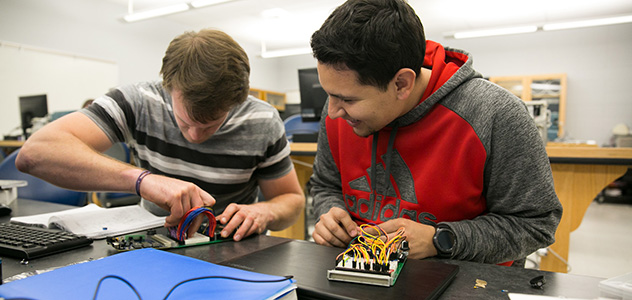Studying Pre-Engineering at Weber State
Weber State’s pre-engineering associate’s degree prepares students with a passion for science, technology, engineering and math to transition to one of the university’s engineering bachelor’s degree programs.
Pre-Engineering Highlights
Weber State’s pre-engineering major courses offer a low student-to-teacher ratio and personalized attention by faculty with industry experience.
While completing your pre-engineering major, you’ll take math and physical science courses that are required to earn your bachelor’s degree in engineering.
Credits from the program easily transfer to nearby peer institutions if you decide you’d like to continue your education at another university. You can meet University of Utah or Utah State University general education requirements while completing your associate’s degree.
Beyond the Classroom
As a pre-engineering major, you can connect with other students and participate in networking opportunities and other events through student groups, such as the Society of Women Engineers and Institute of Electrical and Electronics Engineers.

Devin Bigelow
Class of 2021
“The Pre-Engineering Program at Weber State University quickly helps you understand the expectations of current engineering industries. As the professors challenge you and provide informative feedback, you will see how much more you can grow within the engineering field.”

